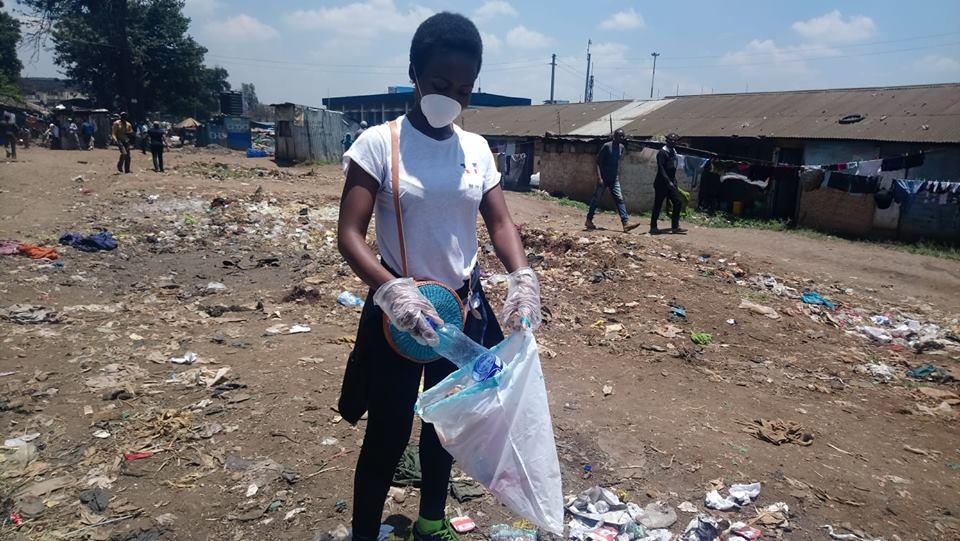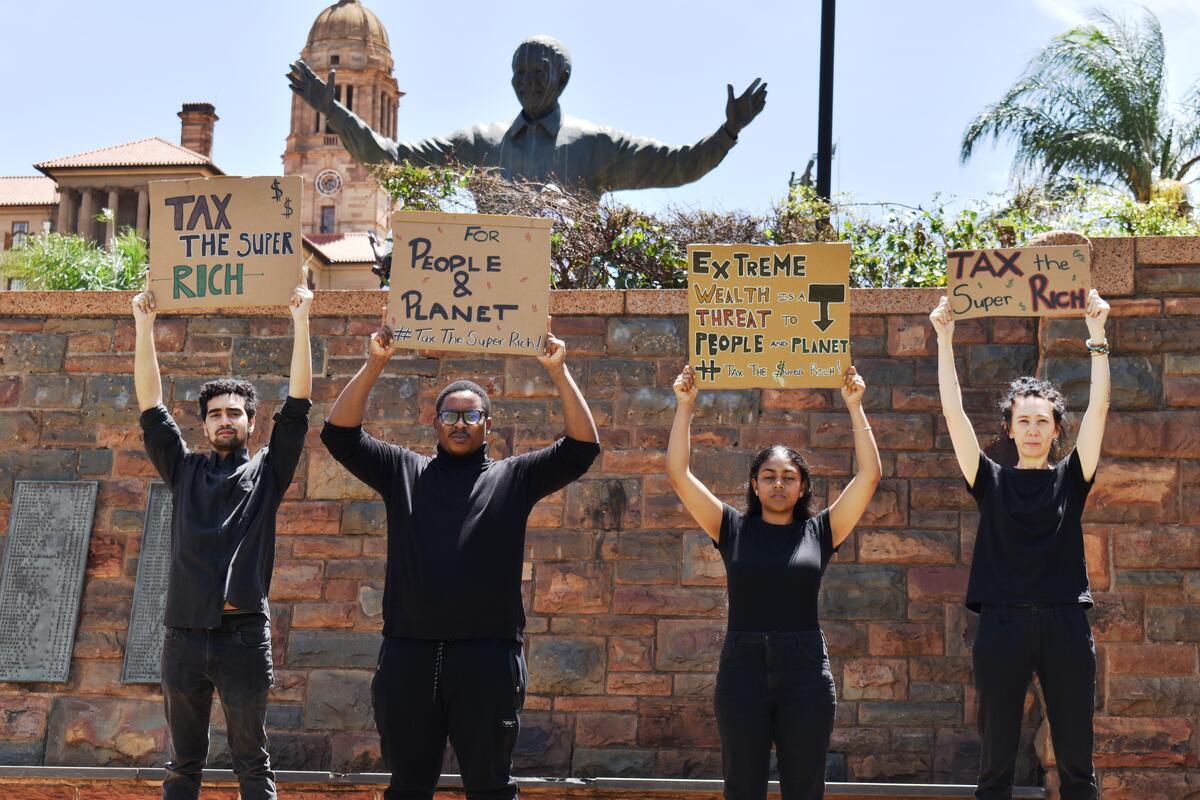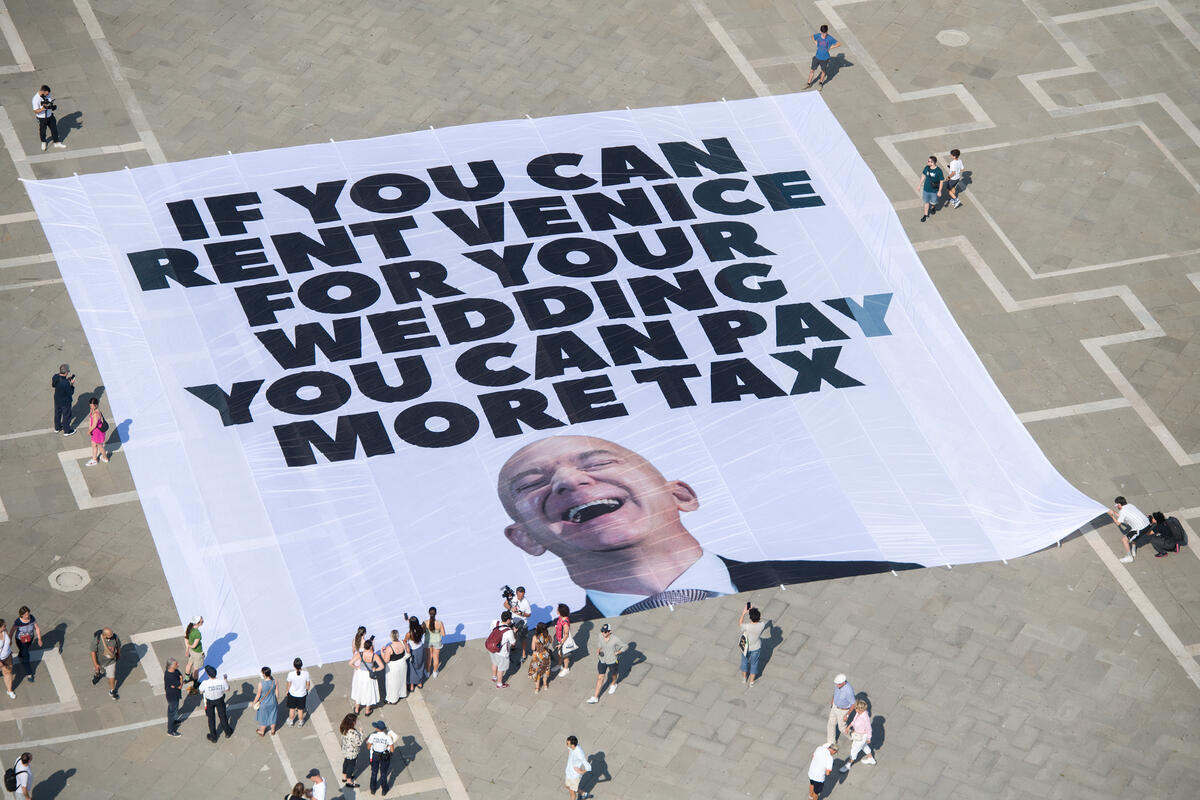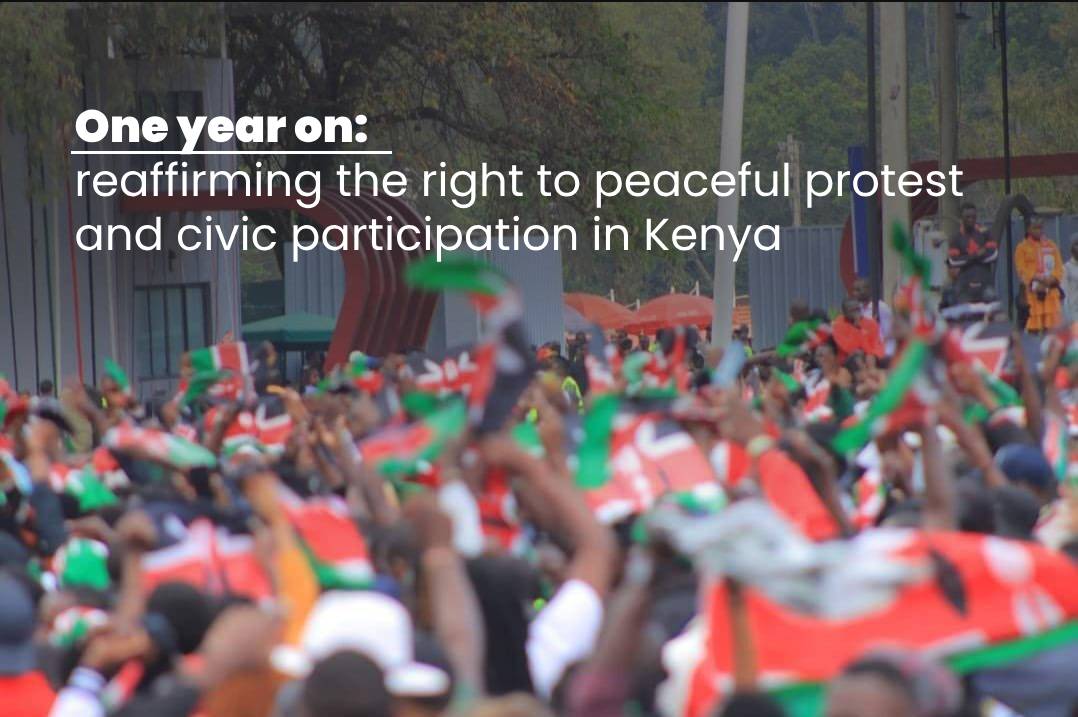Johannesburg, 20 April 2021 – The Department of Environment, Forestry and Fisheries has assured South Africans that safeguarding our health through environmental protection remains their top mandate. The commitment was made at a meeting with Break Free From Plastic coalition on tuesday in Pretoria.
This comes after over 4,000 South Africans put pressure on Director-General Anben Pillay to take action against the plastic pollution crisis in South Africa by adopting stricter measures to cut down production of non-essential single-use plastic.
“We support the Department’s efforts to limit landfilling, but they need to take more drastic steps and ban problematic and non-essential single-use plastics if we are ever to defeat the growing plastic pollution crisis,” said Angelo Louw, Greenpeace Africa Pan-African Plastic Project Lead. “It is time to hold companies to account for what they put into the marketplace without consideration of their products end-of-life management”
Greenpeace Africa, groundWork and other Break Free From Plastic partners have on several occasions called on Pillay to take measures that will ensure greater accountability for companies who manufacture and sell plastic products in South Africa. Producers have a responsibility to reduce plastic production at source and find alternative delivery channels that will ensure a sustainable future and an end to the plastic pollution crisis.
“The fact that we have gone as far as to draft extended producer responsibility regulations implies that producers are at fault here, and we need regulations that are well enforced,” said Niven Reddy, Break Free From Plastic Regional Coordinator. “Ensuring greater transparency in the recycling chain, and encouraging innovation through the implementation of an extended producer responsibility principle that includes reduction targets and promotion of reuse and refill models are some of the recommendations that we put forward in our meeting today.”
The coalition raised concerns about the loopholes that extended producer responsibility regulations leave for room for corporations to ‘greenwash’, and impose false solutions like recycling.
“If recycling alone was the solution, as corporations will have you believe, then we wouldn’t have such low recycling rates. There would be more than 9% of plastic recycled globally and 17% recycled in SA,” continued Reddy.
Plastics have become a major scourge on the environment with many littering the oceans, and blocking drainages. In South Africa, over 2 billion single-use plastic bags are used every year. Unfortunately, half of all plastic produced is designed to be used only once — and then thrown away and ends up in either landfills or being consumed by marine species.
Greenpeace has also called for enforcement of Extended Producer Responsibility (EPR) in the production of plastics by regulating corporations that produce unnecessary single-use packaging for products. Stronger regulations are needed to drastically reduce the production of unnecessary single-use plastic packaging.
The Department confirmed that all submissions made by Greenpeace supporters will be taken into careful consideration before the process is finalised on 5 May 2021, saying that its mandate to safeguard the health of citizens remains critical and essential in their decision making.
“This process is an opportunity to affect real change in improving the environment we all live in. The Department has the chance to truly improve the lives of all South Africans,” concluded Louw.
Notes to the Editor
[1] Break Free From Plastic is a global anti-single-use plastic coalition. Its online form to make submissions to DEFF, calling for stricter plastic regulations, can be found here.
Other research has found microplastics present in South Africa’s tap water and in sea salt samples from Senegal. An estimated 70 percent of cattle and sheep deaths are caused by plastic bag ingestion in the capital of Mauritania. Plastic pollution has made its way to the most remote waters, with microplastics showing up in snow samples from the Antarctic.
Contact Details
For Greenpeace Africa: Chris Vlavianos, Communications Officer, +2779 883 7036, [email protected]
For Break Free From Plastic: Tsepang Molefe, Media, Information and Publications Campaign Manager, [email protected]





Discussion
While skin diving, I recently came across an island of discarded plastic bottles, sheeting, ropes, etc drifting in a bay on the West Coast of Cape Province. Nobody will ever be able to get rid of these tons of ugly plastic thrash in the sea. Eventually it will become part of our coastline, spoiling it for coming generations. Please stop the plastic pollution at its source.
Thank you for sharing with us. Plastic is destructive towards the environment and its inhabitants; we have a report Ghost Gear: The Abandoned Fishing Nets Haunting Our Oceans shows that an estimated 640,000 tonnes of abandoned or lost fishing equipment, or ‘ghost gear’, enter the ocean every year, equivalent in weight to more than 50 thousand double-decker buses. Kindly read more here>>> https://www.greenpeace.org/africa/en/blogs/8248/ghost-gear-the-abandoned-fishing-nets-haunting-our-oceans/
Plastic producers must take responsibility!
Absolutely 💯!!!
If any plastic has to be used at all, let it be as little as possible. And don't make any mess with it, ever!
Thank you for your comment. Indeed this is a collective effort from consumers, retailers, governments and plastic manufacturers.